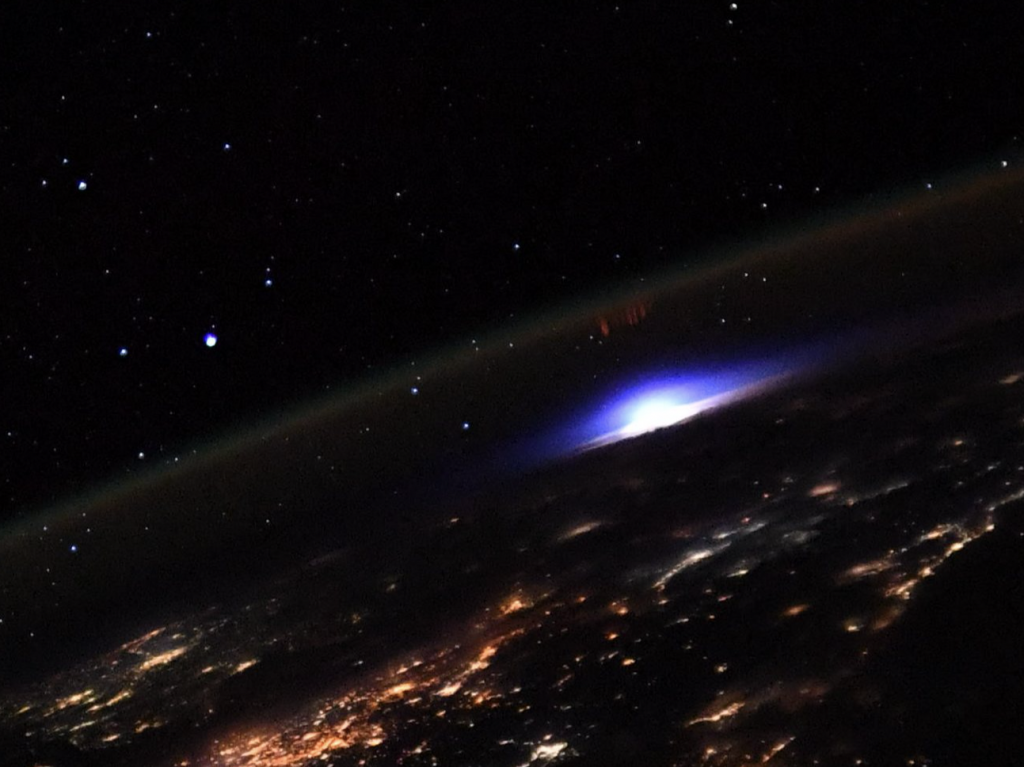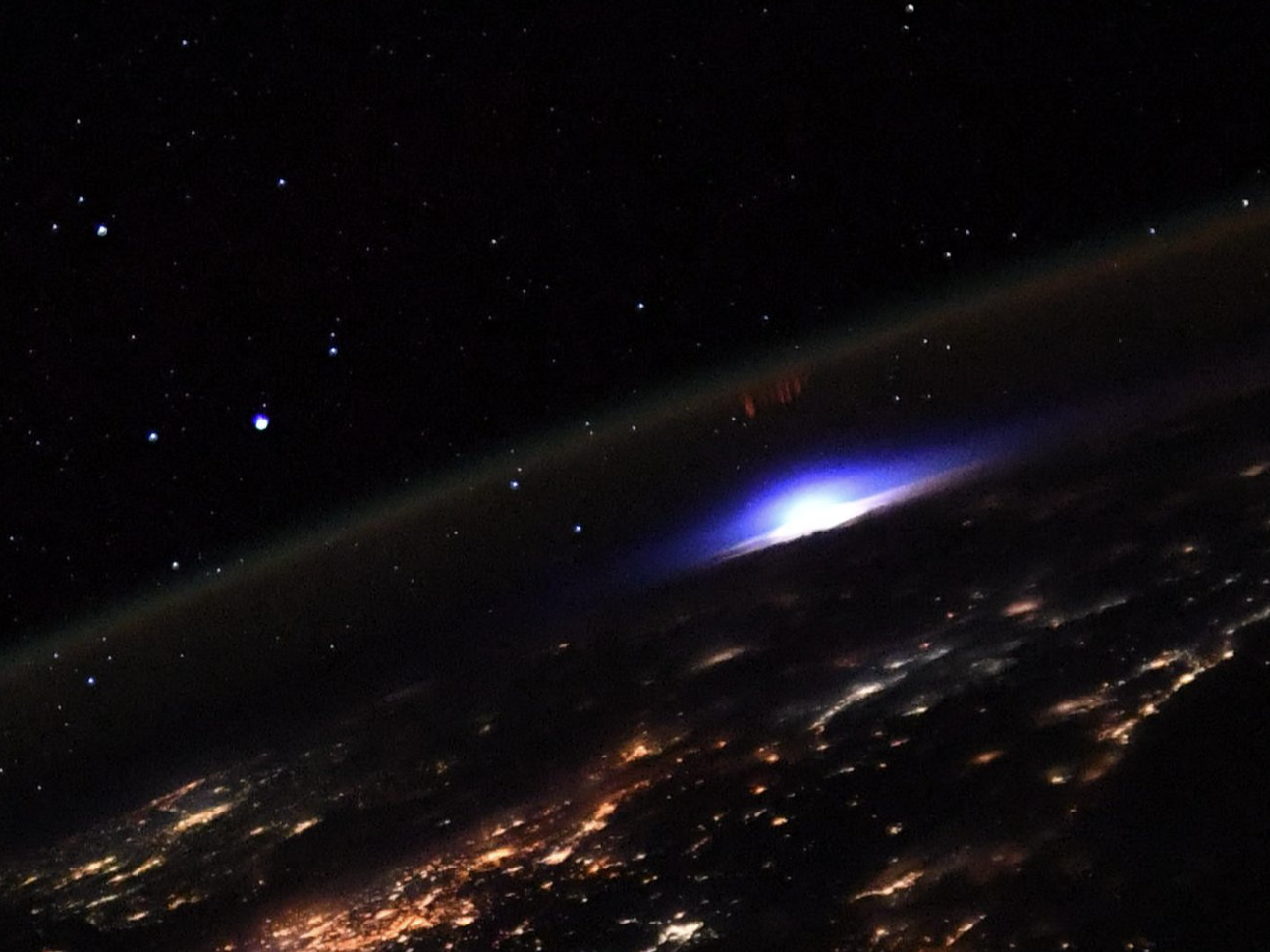
ESA/NASA-T. Pesquet
- Thomas Pesquet, an astronaut on the ISS, photographed a flash of red light in the upper atmosphere.
- The phenomenon, called a sprite, can be seen above a thunderstorm.
- The picture is a "very rare occurrence," Pesquet said.
An astronaut onboard the International Space Station has captured a rare image of a red "sprite" above Europe while recording a timelapse from space.
The picture, which was taken on September 9, is a "very rare occurrence," French astronaut Thomas Pesquet said in a Flickr post.
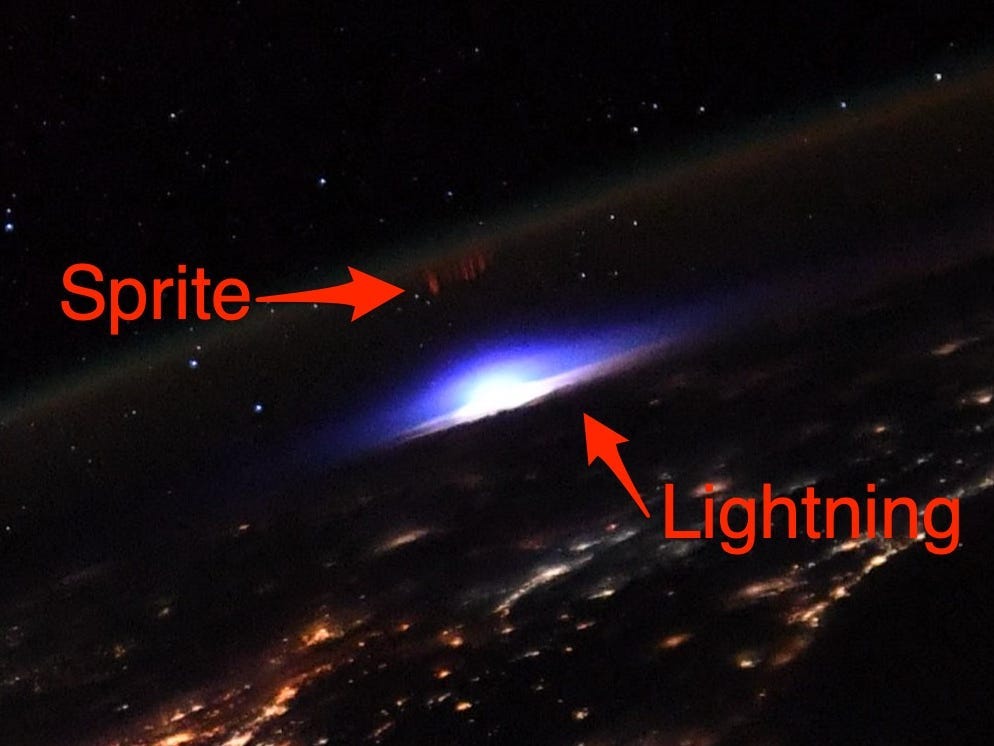
ESA/NASA-T. Pesquet
That is because these red flashes are only visible for a few milliseconds, per NASA.
Because their pictures are so rare, very little is known about sprites, the European Space Agency astronaut Andreas Mogensen said in 2016.
We know, however, that they are made up of lightning that shoots up toward space, rather than down to the ground, he said.
As the electrical discharge interacts with nitrogen in the atmosphere, it gives off a light with a reddish hue, per NASA.
They are part of a category called "transient luminous events," which also includes "elves" - halos of red light - and "jets" - flashes of blue light that shoot up towards space, according to the ESA.
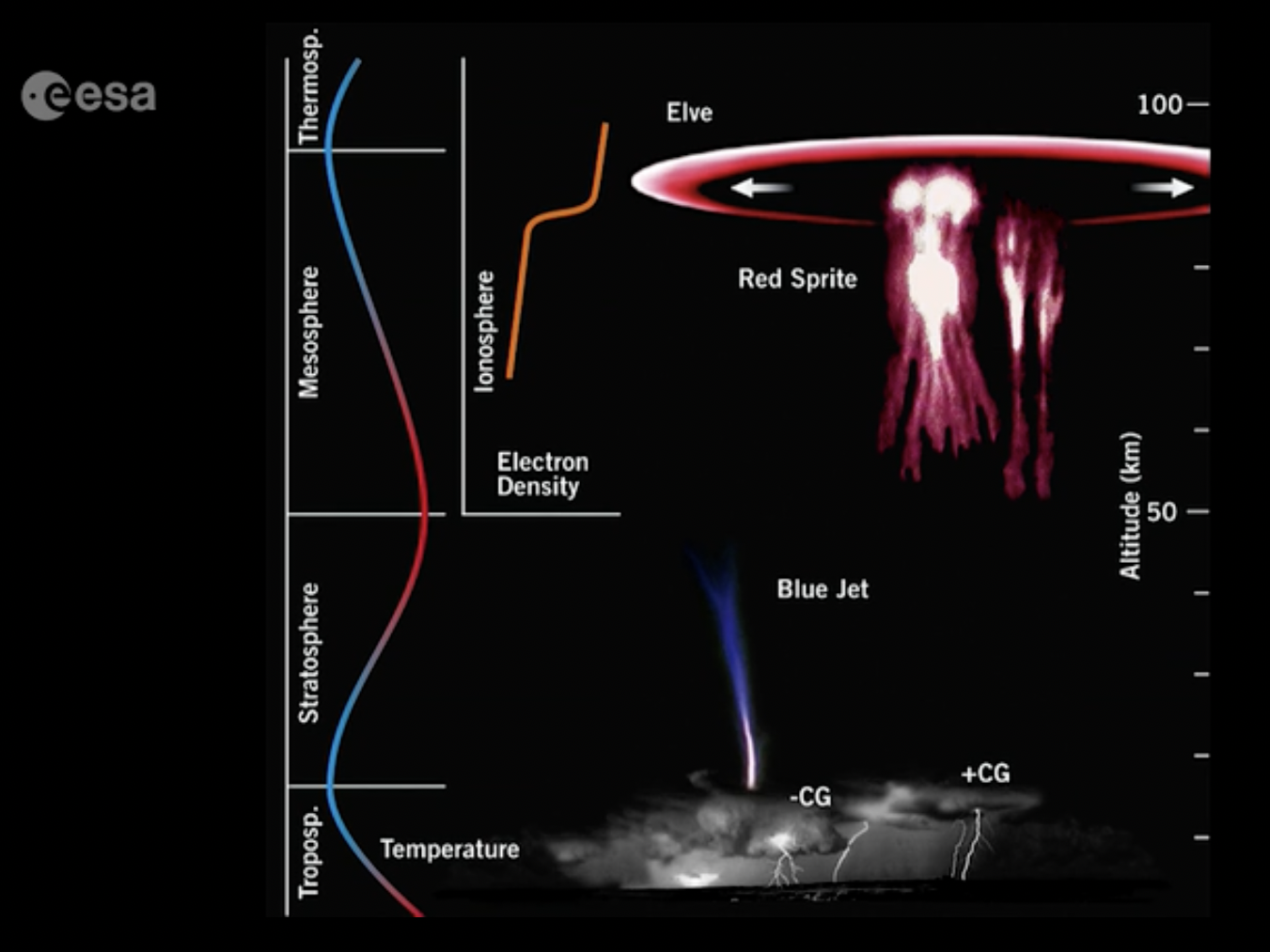
ESA
Jets captured over India from space can be seen in the GIF below.
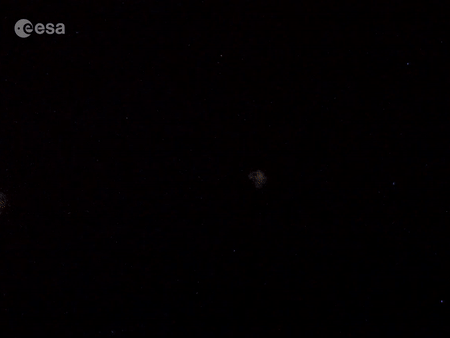
ESA
The ISS has instruments outside the space station's Columbus laboratory that are dedicated to observing these flashes of light, Pesquet said in the post.
From Earth, sprites are usually hidden behind thunderclouds so, for decades, the red bursts of light were relegated to the stuff of legends until they were first captured on film in the late 1980s.
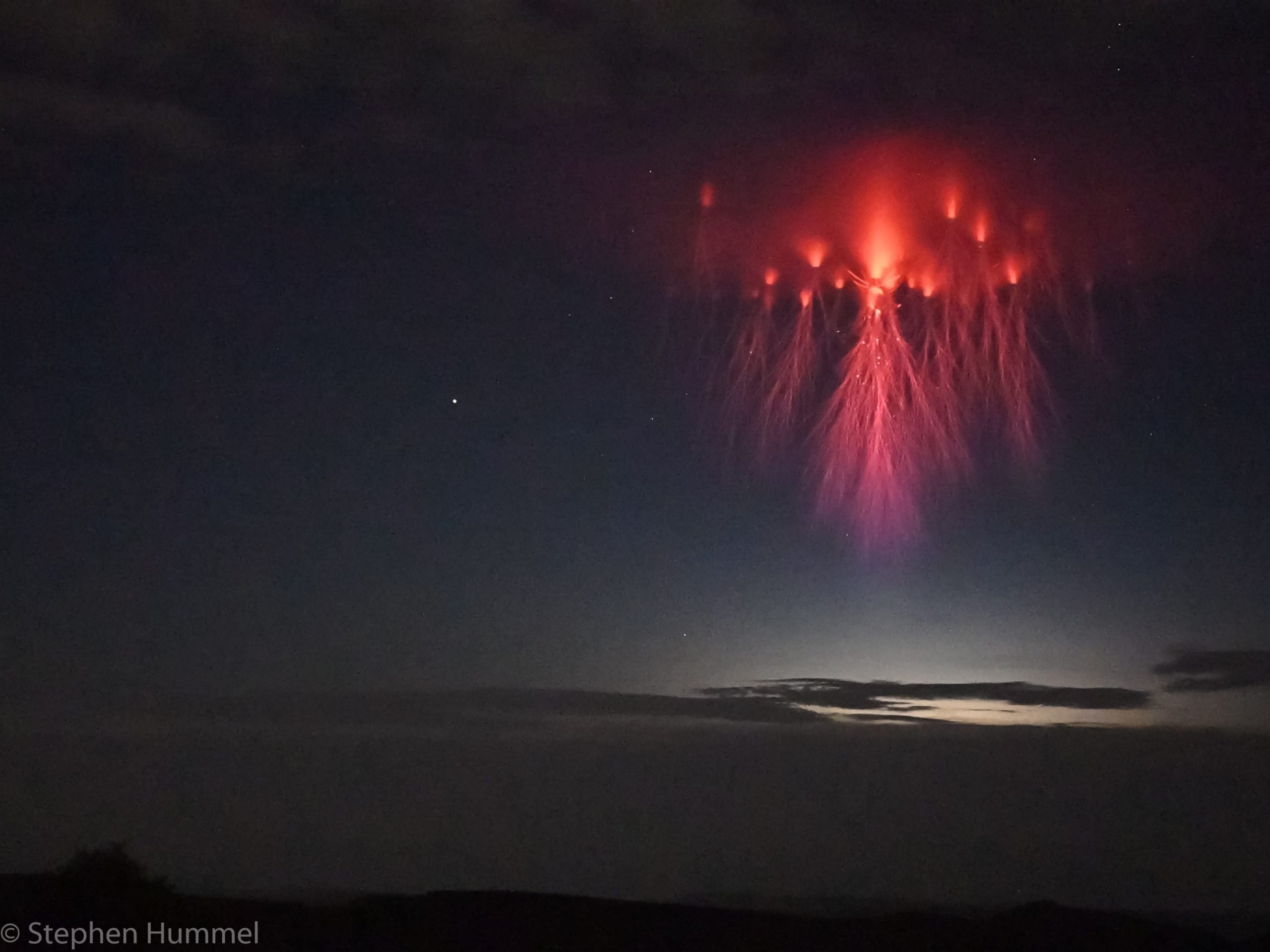
Stephen Hummel
This is not the first time sprites have been snapped from space. Below are two pictures of sprites captured from the ISS in 2015.
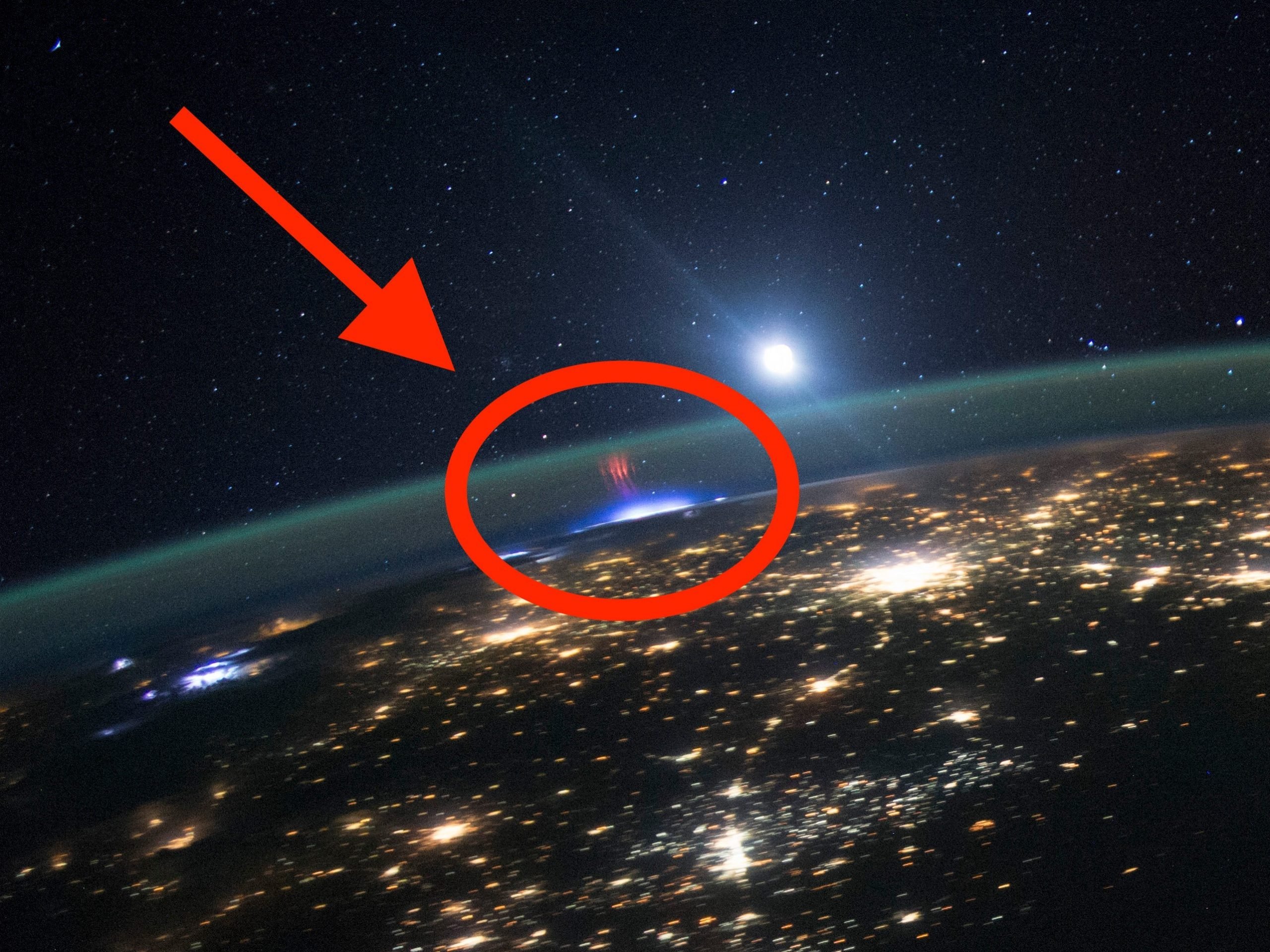
NASA
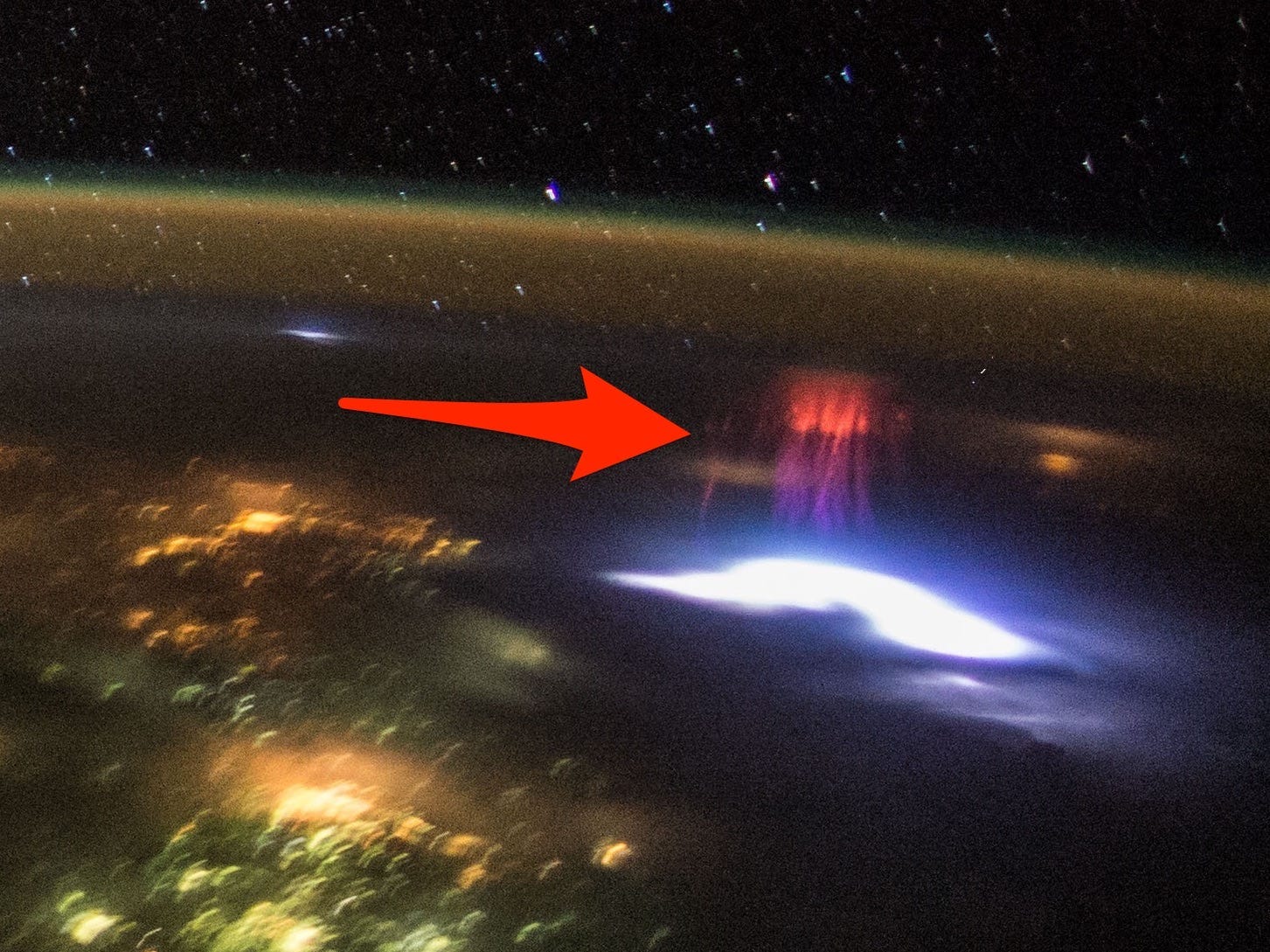
NASA
